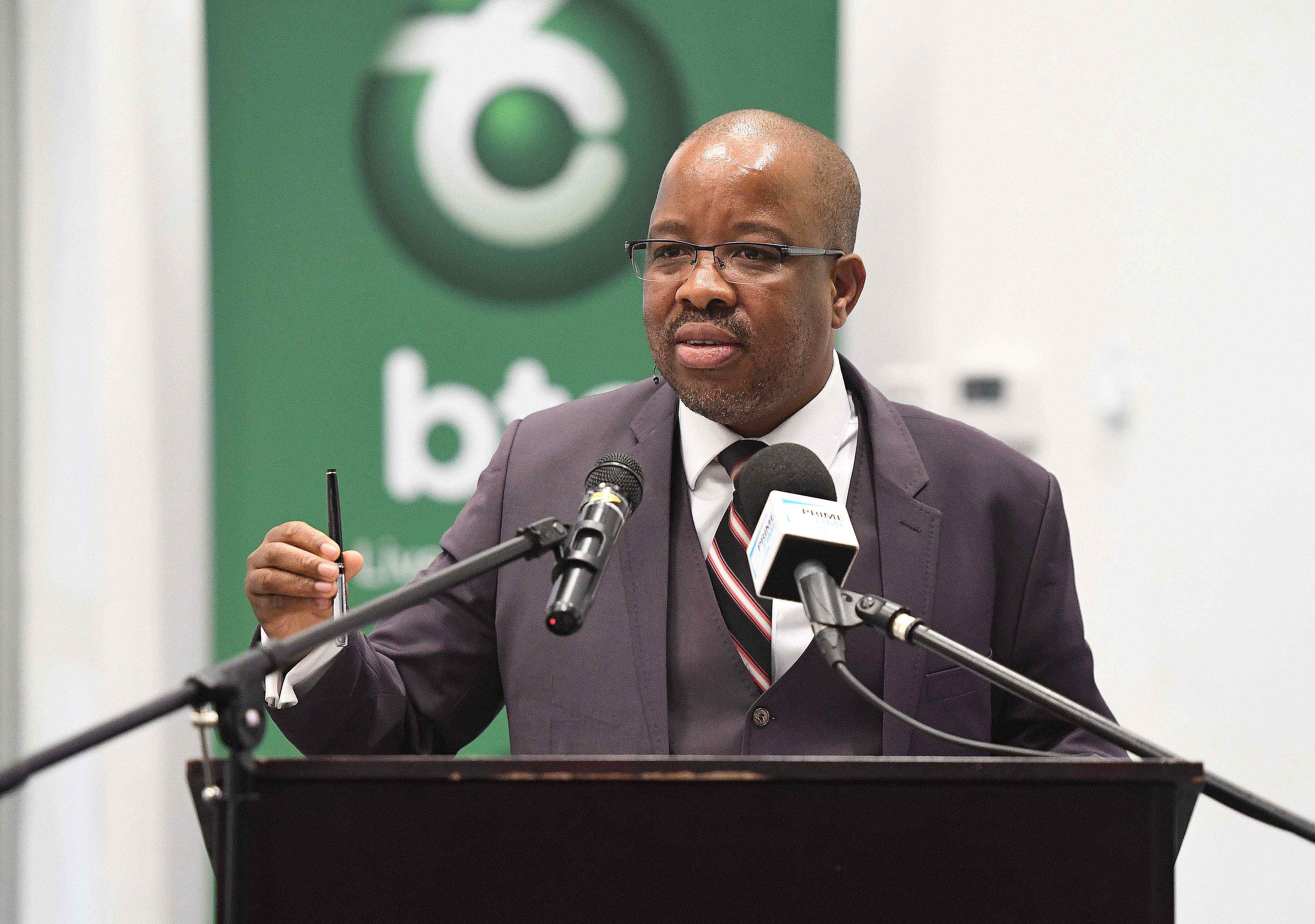Over P211 million was wiped off Botswana Telecommunications Corporation Limited (BTCL)’s cash reserves. Further, profits declined by a staggering P55 million, all indications that the company is on a slump. KEABETSWE NEWEL reports.
Inside BTCL financial results for the year ended 31 March 2019, Managing Director (MD) Anthony Masunga confesses that he is suffocating, because of competition. His company is experiencing declines in subscriptions. The decline in subscriber base means that BTCL might be losing some of its customers, piling pressure on the BTCL bottom line.
Even though consumers tend to use multiple sim cards in Botswana, Mascom Wireless retains the largest subscriber base. It has a subscriber base in excess of 1.8 million giving it a market share of just over 53 percent of the Botswana mobile telecoms market. Orange has around 900 000 while Be Mobile trails behind with around 300 000.
BTCL profit after tax (PAT) fell 25 percent from P217 million to just P162 million. A massive P55 million was wiped off the profits due to an 8 percent decline in total revenue to P1.46 billion as compared to P1.58 billion seen during the previous reporting period.
The overall decline in revenue is mainly attributable to unfavourable trading conditions which saw restrained consumer spend, resulting in a 12 percent decline on the mobile business despite the introduction of new products and services in the market and other initiatives to promote uptake.According to Masunga, other revenue lines such as, fixed voice remained relatively flat whilst fixed broadband declined marginally.
“The telecommunications sector in general registered suppressed revenues for the period due to the reduced spending power of consumers. In line with global trends, consumers continued to switch to newer and cheaper alternative products with lower margins, especially data centric services thus increasing pressure on margins,” he said.
According to Masunga, the revenue decline is mainly attributable to pressure on mobile revenue, as other revenue lines remained relatively flat. It means that its mobile network line is suffocating.
In 2018, BTCL had around P517 million as cash and cash equivalents (cash reserves), but the figure fell to P305 million, signs that the company is bleeding cash.
On the mobile phone side, BTCL faces tough competition from its longtime rivals, Mascom Wireless and Orange Botswana, which enjoy technical support from its international partners. Mascom is controlled by South African mobile giant, MTN, which is the technical brains behind Mascom’s product and service offering.
Orange on the other is also part of the French mobile company, Orange, which also backs up its Botswana subsidiary.
BTCL gets its technical support from Vodafone, a UK based firm. The partnership agreement was signed prior to listing on the Botswana Stock Exchange Limited (BSEL), then under stewardship of former MD, Paul Taylor, who was booted out shortly after he signed the deal and listed BTCL.
BTCL is the smallest network provider with about 17 percent market share which grew by a paltry 2 percent from the previous year. Mascom enjoys 53 percent of the Botswana mobile telecoms market ahead of Orange with 32 percent.
Unlike Mascom and Orange, BTCL under Masunga’s captaincy is conservative and lacks innovation and creativity for an ITC firm. Their services are limited to fixed line, mobile services (voice, SMS, data) and fixed broadband. Masunga admits to tight competition in the mobile line division. He however takes solace in that his company is still the dominant player in the fixed broadband market with 65 percent market share. But even his area of dominance is under threat from an increase in competition in the space from new and existing players.
Fixed services constitute 37 percent of BTCL product portfolio, mobile 35 percent and broadband 29 percent.
Under internet services, BTCL faces tough competition from Internet Services Providers (ISPs) which eat right into the BTCL market share. Mascom and Orange have even diversified to the money market and are giving banks a run for their money through mobile money services. Mascom has a product called My Zaka, in which customers can deposit money, send money, transact, pay bills and any other transaction at the tip of their fingers. The mobile money platform has grown beyond comprehension, and is making millions for the two mobile phone giants.
Orange Botswana remains the lead Mobile money operator in Botswana with a larger market share of the mobile money services sector, ahead of the yellow brand Mascom Wireless and Be Mobile. Orange Money customer base has grown an average of 34 percent per annum from 2014 to exceed 600,000 in 2018, according to the mobile operator. The growth has made Orange Money the leader in the market, capturing about 71 percent of the mobile money market, “in comparison to the addressable population, we have made some gains on this front as we estimate Orange Money accounts to represent +40 percent of this population.”
The mobile money platforms make heaps of cash for Orange and Mascom, which is a diversity to their traditional services. BTC’s mobile money services has long been discontinued. All three mobile operators offer mobile money services, though BTC Mobile has put on hold registration of new subscribers since quarter 1 of 2016 due to the envisaged revamp of the service. BOCRA says Orange Botswana was the market leader at 72 percent market share, followed by Mascom Wireless at 27 percent market share and BTC Mobile at 1 percent. In the previous year, Orange’s market share was 68 percent followed by Mascom with 31 percent and lastly BTC Mobile with 1 percent.




